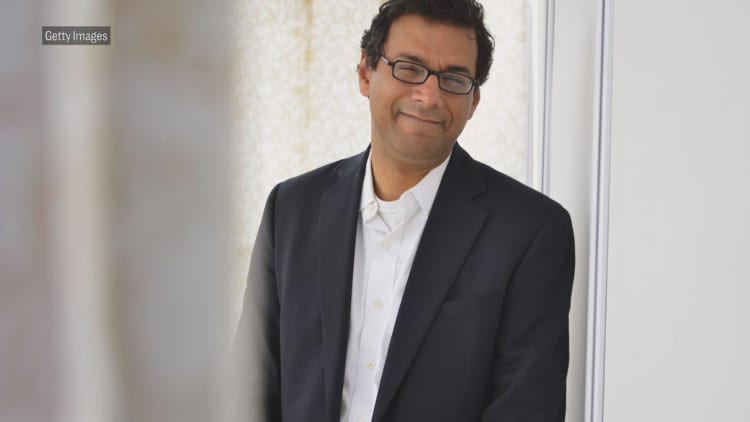
Dr. Atul Gawande writes and speaks about health care — a lot. But he hasn't actually spent nearly as much time changing it.
Despite that, the surgeon and Harvard professor soon will lead the most anticipated health-care company, a joint venture between three corporate titans: J.P. Morgan, Amazon and Berkshire Hathaway.
Those firms tapped Gawande on Wednesday to head the as-yet-unnamed health company. J.P. Morgan CEO Jamie Dimon, Amazon Chief Jeff Bezos and Berkshire leader Warren Buffett announced the venture in January.
Skeptics have questioned whether the trio's grand project can actually change the system or whether it will become just the latest failed attempt by employers to lower health-care costs. Many have tried unsuccessfully over the years on their own or through other alliances.
Some have praised Gawande as one of the most brilliant minds in health care. Others, however, have questioned whether he has enough management experience to lead the venture.
"It's a strange pick," said Craig Garthwaite, director of the Health Enterprise Management Program at Northwestern University's Kellogg School of Management. "I have a lot of respect for him. He's a great physician who can run a hospital. But does he know how to run a (pharmacy benefits manager), deal with pharmaceutical companies and the business side of health care? I don't see any evidence of that."
Buffett, Dimon and Bezos haven't said much about what they're seeking to do other than broadly lowering costs. It's a topic Gawande has written extensively about.
As a staff writer at The New Yorker, he's penned articles about why costs are so high and how more — and more expensive — medical care doesn't mean better outcomes.
He profiled McAllen, Texas, one of the most expensive health-care markets in a 2009 New Yorker piece, "The Cost Conundrum." He determined the primary cause was "across-the-board overuse of medicine."
"This is a disturbing and perhaps surprising diagnosis," Gawande wrote. "Americans like to believe that, with most things, more is better. But research suggests that where medicine is concerned it may actually be worse."
These ideas alone have won him praise, though. Buffett's longtime investing partner Charlie Munger gave him $20,000 after reading the piece, Buffett told CNBC in 2010.
Gawande founded Ariadne Labs, a partnership between Harvard and Brigham and Women's Hospital focused on innovation in health systems, in 2012 — which has provided him with management experience. He'll transition to chairman from executive director when he starts his new role on July 9.
The trio says the new company will be different from traditional ones because it will be "free from profit-making incentives and constraints."
Ash Shehata, a principal at KPMG's health care and life sciences practice, said choosing Gawande signals the Buffett, Bezos and Dimon trio is thinking about strategy before execution.
"I do think it's an interesting position because they're starting at a much higher level of strategy by selecting (Gawande) than somebody coming from the operational side of the industry," he said. "So instead of starting at 25,000 feet, they're starting at 50,000 feet."
They'll now need to balance the management team with people who can execute the vision, he said, whatever that may be.
(Correction: An earlier version of this story misstated Gawande's start date.)


